If you think your puppy is always hungry, it’s probably not a bad thing, but you need to control it to avoid obesity. Sometimes excessive appetite can really be the result of health problems (both mental and physical). So it’s up to the puppy’s owner to determine if there’s cause for concern and take appropriate action.
I’ve learned what veterinarians are saying about this issue. These tips will help you decide how to proceed and help your dog.
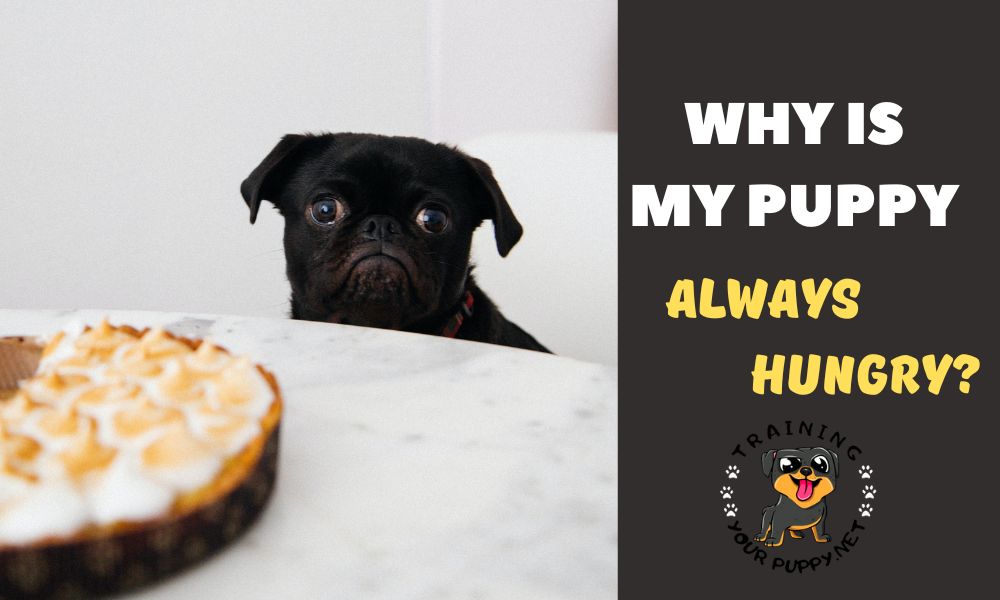
Contents
Why are puppies always hungry?
Dogs generally love to eat, and it’s often hard to stop them. It’s their instinct because who knows what tomorrow will bring? Besides, puppies have a good appetite because they’re still growing and need energy.
Some breeds are just obsessed with food, and they have this problem more often. These include Dachshunds, Labradors, Beagles, Pugs, and Cocker Spaniels. And if you have more than one animal living in your house, there can be a “who eats everything fastest” race between them.
Comment
by u/ConorDrew from discussion My lab puppy is always hungry…
in labrador
So there’s probably nothing wrong with your pup, especially if his weight and condition are okay. You just need to get him used to eating in moderation.
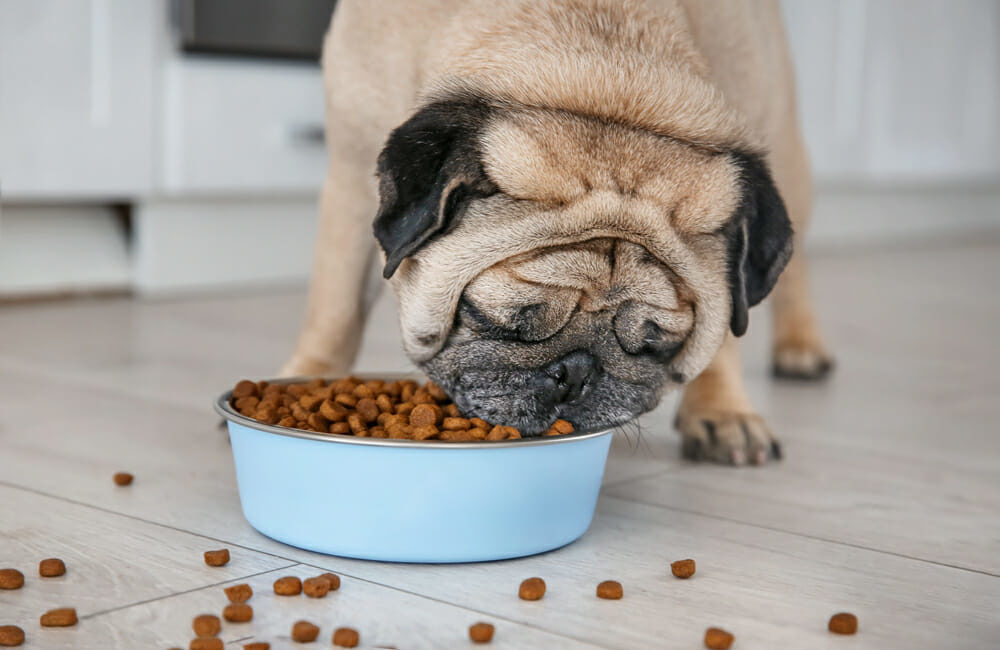
But you still need to check if he’s healthy, because sometimes hyperphagia (overeating) in dogs is caused by certain diseases. It’s worth being extra careful if your puppy suddenly changes his behavior.
The four main causes of hyperphagia
I’ve listed the 4 most common diseases that cause abnormal hunger. They aren’t that difficult to diagnose. Sometimes it’s enough to pay attention to the other symptoms.
1️⃣Parasites
If a puppy has suddenly become so hungry, it has probably become infected with helminths. Parasites absorb nutrients and make the animal eat more.
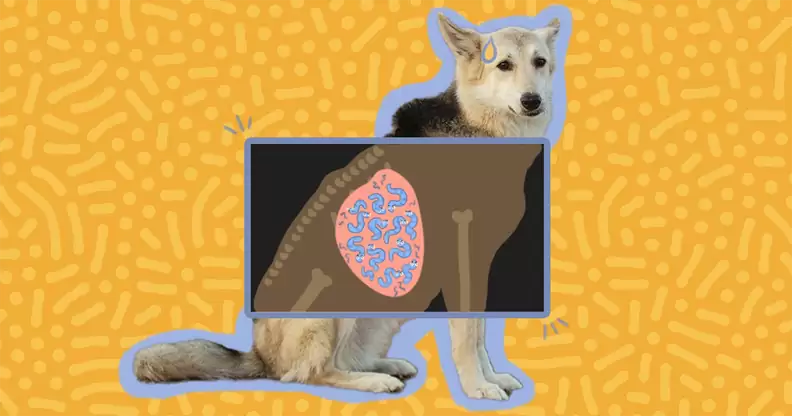
Your puppy may also have a bloated belly, constipation, diarrhea, or vomiting.
Fortunately, this problem can easily be corrected by giving your puppy some medicine. But first, you need to visit the vet and have a stool test done to look for parasites.
2️⃣Anxiety
Admit it: do you eat to relieve stress? I definitely do. Dogs can behave this way, too.
How can you tell if your pet is suffering from anxiety or stress? Pay attention to signs such as:
- destructive behavior ( ruining things and furniture);
- whining, barking;
- lethargy and sleepiness;
- toileting in the wrong place.
This behavior can be caused by separation anxiety, fear, loneliness due to lack of attention and physical activity, the death of a loved one, or other trauma. If you can identify the cause of the stress, you can successfully fight it. But it may require a lot of time and effort.
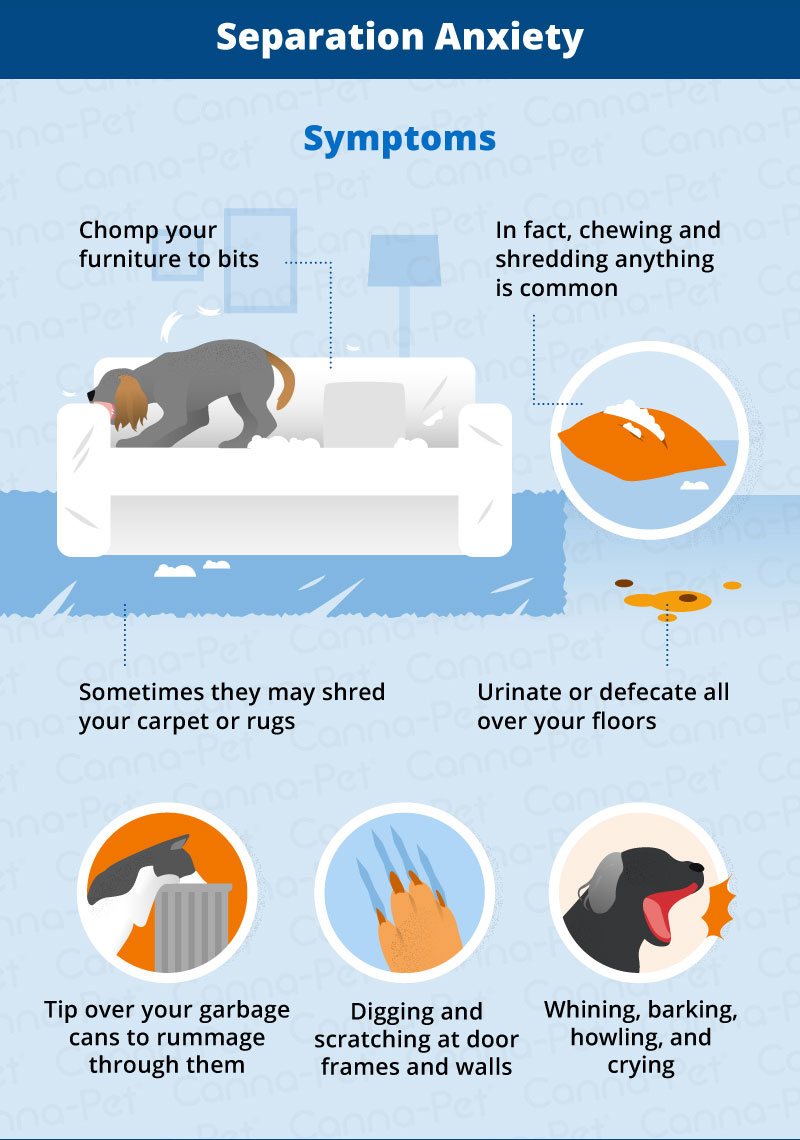
You should seek help from a canine behaviorist. A specialist will tell you how to remedy the situation.
3️⃣Improper nutrition
If your puppy is fed an unbalanced diet, he may not get enough nutrients. He tries to compensate by eating more. Hyperphagia also occurs in puppies that have been fed irregularly. They eat a lot because they want to store more calories in case the next feeding doesn’t come soon.
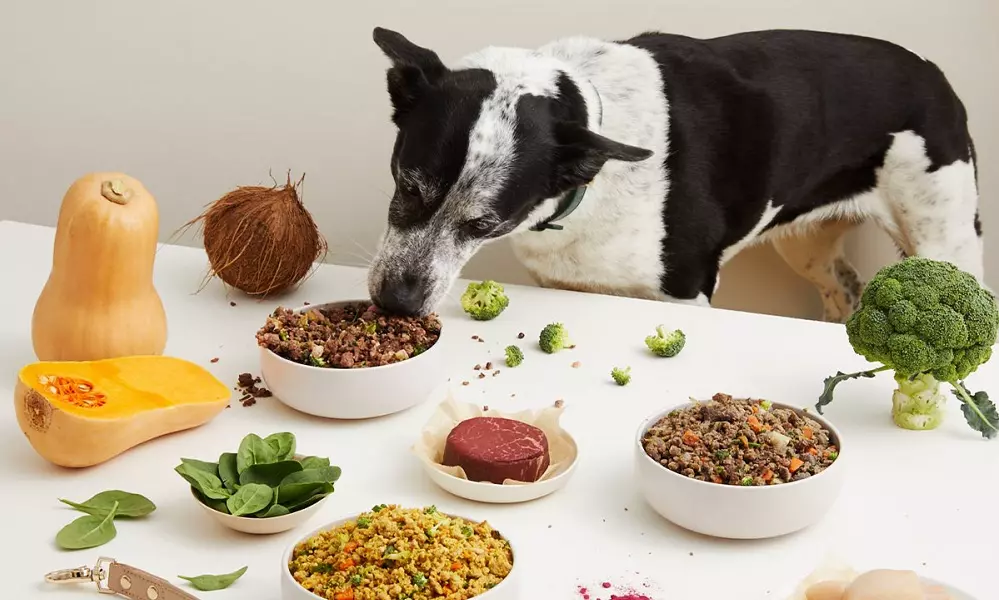
Ensure your puppy’s diet is balanced and that you feed him properly. You may be surprised to read the composition of your dog food.
If your dog used to eat randomly, you must carefully monitor portions and meal times. Over time, his eating habits will change. I have an article on when and how much a puppy should eat. It can help you.
4️⃣Medication intake
Certain medications, such as thyroid supplements, corticosteroids, sedatives, or anticonvulsants, can cause increased appetite in dogs. You should discuss with your veterinarian how to control hunger during treatment.
Some other conditions can cause eating disorders, such as diabetes, Cushing's disease, and GI tumors. However, these aren't common in puppies. Such diseases are more common in middle-aged or older dogs and are accompanied by other symptoms that are hard to miss. However, diagnosis usually requires various tests, including endoscopic examination, ultrasound, and hormone tests.
How do I know if my puppy is hungry or just greedy?
Gluttony isn’t always a sign of illness, but you should take your puppy to the veterinarian if he shows any of the following changes in addition to his increased appetite:
- ❗️stool irregularities, vomiting, frequent urination;
- ❗️noticeable weight loss or gain;
- ❗️eating inedible objects;
- ❗️hair loss.
Such signs indicate the presence of a serious disease.
If your dog is too skinny, he’s not eating enough, and if he’s too fat, you need to reduce his portions. This chart can help determine if your dog is at a healthy weight:
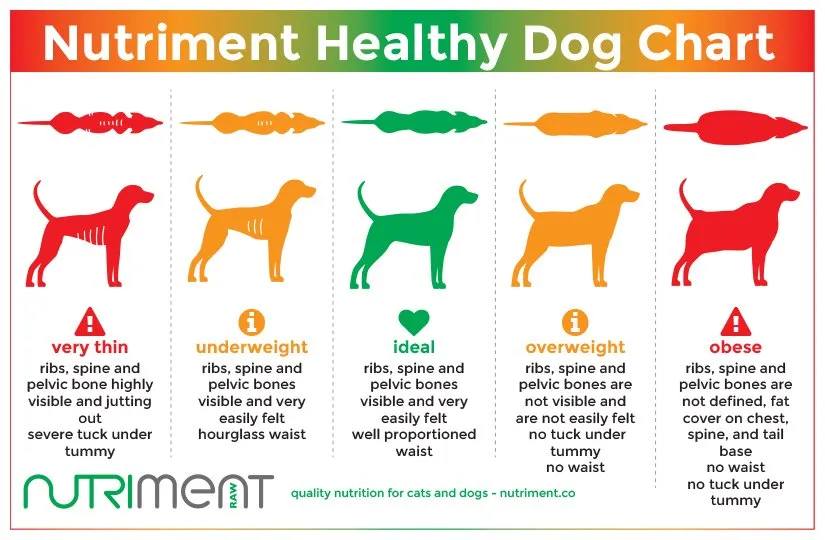
If your puppy has no other symptoms, including weight problems, he’s probably just greedy.
What to do if your puppy is always hungry
If you’ve concluded that your puppy is just gluttonous or has bad eating habits, try the following:
- ✅Determine how much your puppy should eat. Try using the dog feeding calculator to figure out what portions you should give dogs of that breed at that age. If you give him treats, they should be included in this amount. It’s better not to give a lot of goodies because they’re usually very highin energy.
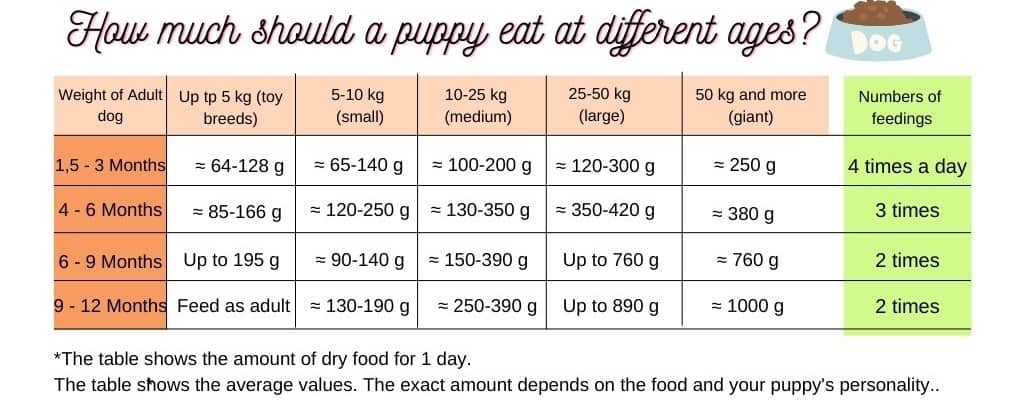
- ✅Use food designed for puppies of this breed. It should contain enough calories, all the necessary nutrients and fiber. Different types of food (both dry and wet) are desirable.
- ✅Establish a feeding schedule and stick to it. Remind all family members not to give your puppy extra treats or food from the table.
- ✅You can take your dog out of the kitchen when family members are eating there. This way, neither you nor the dog will feel bad.
- ✅Use slow-feeding bowls. They’re designed so your dog can’t swallow everything at once. That way, he can know he’s full.
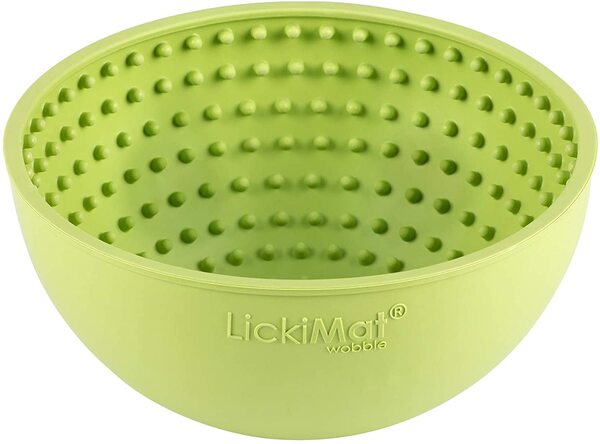
- ✅Give your pup plenty of exercise. This is the cure for many emotional disorders.
With these tips, you can curb your puppy’s unruly appetite.
Conclusions
So, let me remind you of a few key points:
- Puppies often seem perpetually hungry because they are growing and need more food, and some dog breeds are just gluttons and can’t turn down yummy treats.
- Parasites, an anxiety disorder, or taking certain medications can also cause excessive appetite.
- If your pup has problems with bowel movements, vomiting, or other symptoms, be sure to see a specialist.
- If your puppy seems healthy but tends to overeat, a balanced diet based on a specific schedule can help correct poor eating habits.
- If your dog is overweight and always hungry, you need to reduce portion sizes and provide more exercise.
Still have questions? Write them in the comments.
FAQ
How can I tell if my puppy isn’t eating enough?
Such puppies lose weight, and the ribs become visually noticeable. You shouldn’t worry if the puppy looks healthy and energetic and normally gains weight. You can additionally consult your veterinarian.
How do you know if a puppy is overeating?
You can tell if you’re overfeeding your puppy if you see signs of obesity:
a sagging belly;
you can’t see your puppy’s waist;
he has ribs that are hard to feel beneath the fat.
Is it dangerous to overfeed a puppy?
Yes, because obesity can lead to several health problems in dogs, including diabetes, arthritis and heart disease. Some of these are irreversible. It shortens a dog’s life expectancy.
Why is my puppy so hungry in the morning?
If your dog wakes you up early and demands food, you may need to feed him a little later in the evening. Then your puppy will be able to hold out longer. Some dogs also have a bad habit of waking their owner early by barking to get attention and food. You can control this by not paying attention to the morning barking.
Sources:
https://www.petmd.com/dog/symptoms/why-my-dog-always-hungry
https://www.cesarsway.com/why-dogs-eat-and-eat-and-eat/
Related video: